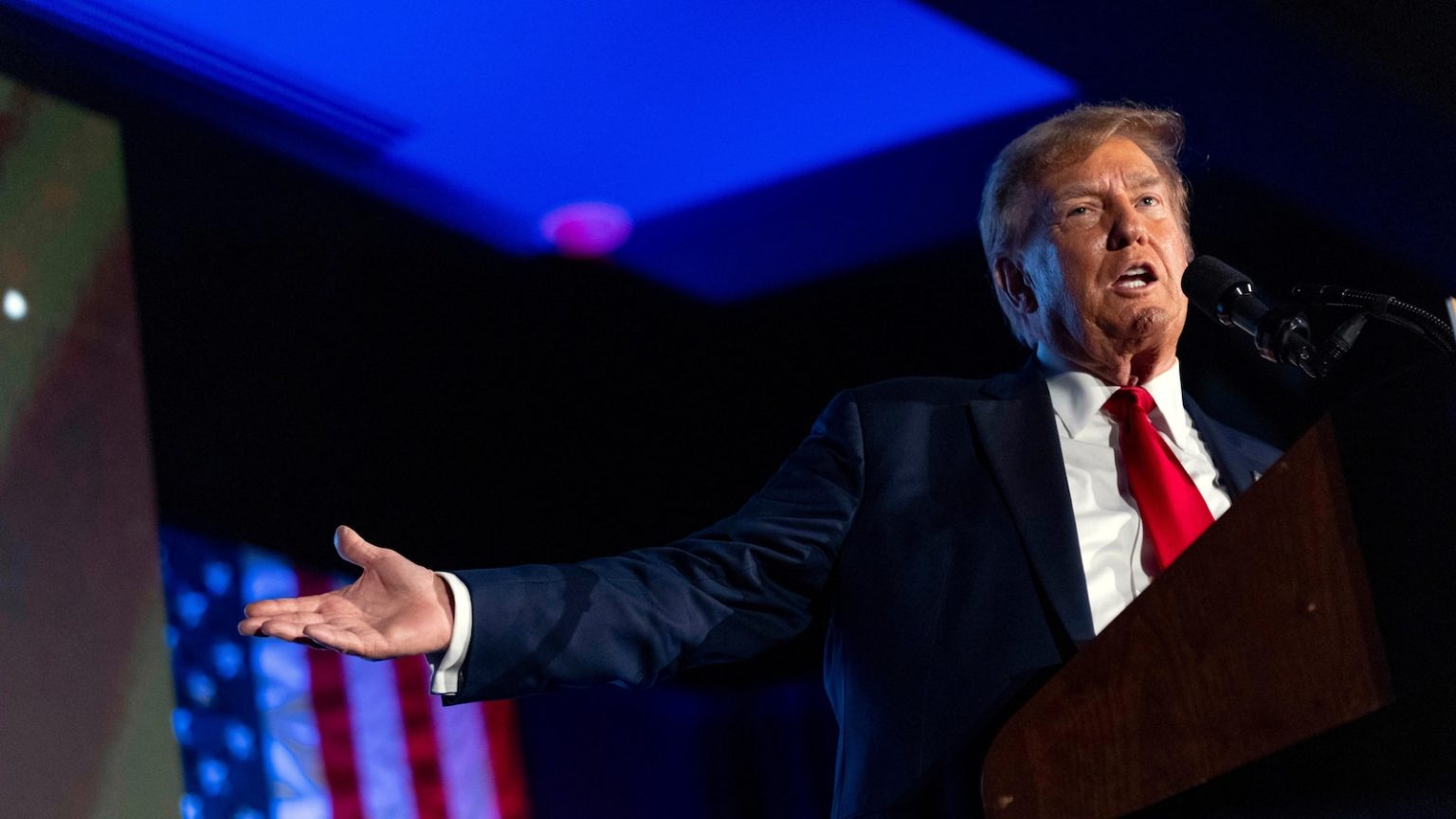Former President Donald Trump has claimed that his four criminal indictments have actually boosted his support among Black Americans. He believes that they see him as a victim of discrimination, comparing his legal troubles to the historic legacy of anti-Black prejudice in the U.S. legal system. Trump argues that he is the victim of political persecution, despite there being no evidence that President Joe Biden or White House officials influenced the filing of 91 felony charges against him. He has compared himself to Alexei Navalny, Russian President Vladimir Putin’s top domestic rival, who died in a remote Arctic prison after being jailed by Putin.
Trump has centered his third campaign for the White House on his grievances against Biden and what he alleges is a “deep state” targeting him. He faces charges related to his efforts to overturn the 2020 election, keeping classified documents at his Florida estate, and allegedly arranging payments to a porn actress. Despite these legal challenges, he remains the dominant Republican front-runner and is favored to beat former U.N. Ambassador Nikki Haley in her home state of South Carolina. Trump has predicted that he can do better with Black voters in November than he did four years ago, citing Biden’s declining poll numbers among Black adults and what he sees as advantages on issues like the economy and immigration.
During a black-tie event for Black conservatives in South Carolina, Trump spoke about his indictment on state racketeering charges over the 2020 election and noted that his mug shot taken by Georgia authorities had resonated with the Black population. He was flanked on stage by Black elected officials, and many in the crowd cheered throughout his speech. Trump mixed his regular campaign remarks with appeals to the Black community and jokes that touched on race. He also criticized former President Barack Obama, the first Black person to be elected to the White House, in a comparison about the cost of remodeling Air Force One.
While Trump believes he can win over more Black voters in the upcoming election, Republicans face challenges in courting this demographic, as Black voters are overwhelmingly supportive of the Democratic Party. In a December poll, only 25% of Black Americans had a favorable view of Trump. Some Black voters expressed skepticism that Republicans, and Trump in particular, could persuade them to switch parties, citing controversies and concerns about his motives. Despite this, some conservatives argue that the Democratic Party’s appeal to Black voters is based on “emotional politics” by evoking racism.
Trump has a history of stoking racial tensions, facing accusations of racist business practices and making inflammatory remarks about minority groups. From calling for the death penalty for the Central Park Five to spreading the lie that Obama was ineligible to hold office, Trump has consistently made controversial statements about race. His derogatory comments about African countries and congresswomen of color have further exacerbated racial divisions. As he continues to navigate his legal challenges and campaign for the presidency, Trump’s approach to race relations remains a point of contention.









